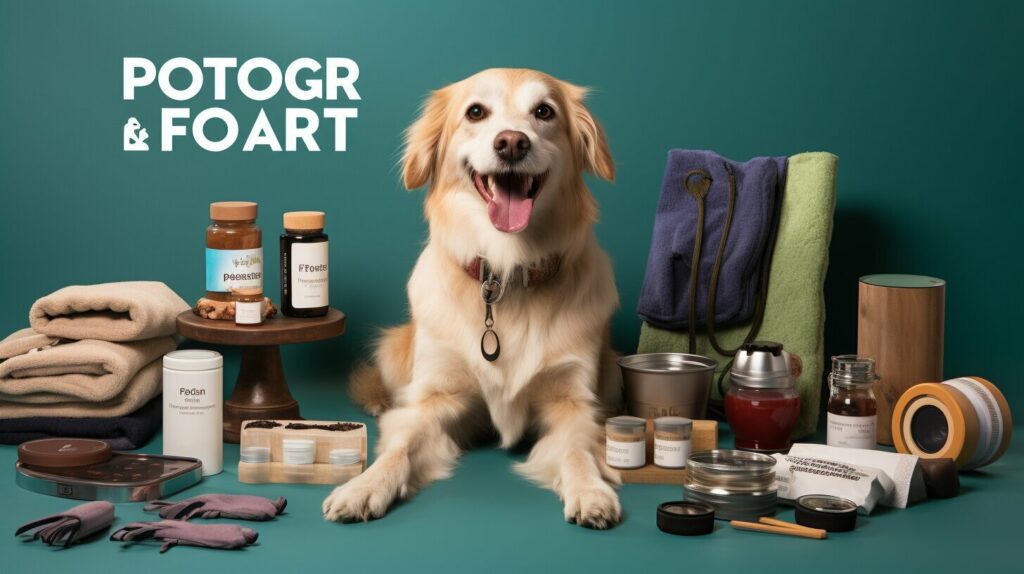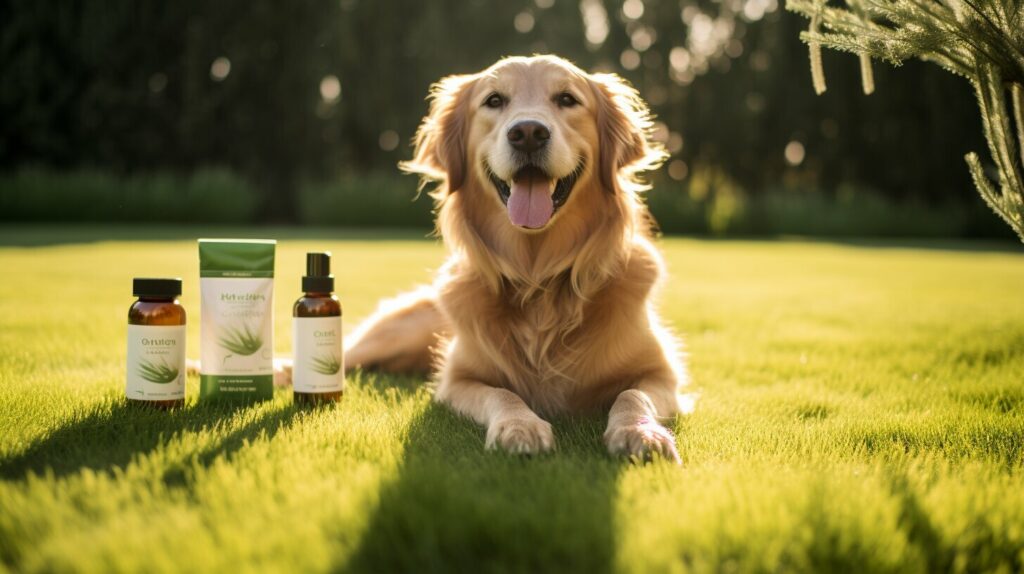As a dog owner, understanding parvo in dogs is crucial for protecting your furry friend’s health. Parvo, short for canine parvovirus, is a highly contagious virus that can cause serious illness or even death in dogs, especially puppies and unvaccinated dogs. In this section, we will provide you with important information about parvo in dogs, including its causes, transmission, and prevalence.
Key Takeaways
- Parvo is a highly contagious virus that can cause serious illness or death in dogs.
- Puppies and unvaccinated dogs are at the highest risk of contracting parvo.
- Parvo is spread through contact with fecal matter from infected dogs or contaminated environments.
- Knowing the essential information about parvo can help you protect your dog’s health.
What is Parvo?
Parvo in dogs, also known as canine parvovirus, is a highly contagious disease that affects dogs of all ages and breeds, but especially puppies under six months old. This virus attacks the gastrointestinal tract, causing severe vomiting, diarrhea, and dehydration. Parvo is highly contagious and can spread through contact with infected dogs or their feces.
The virus belongs to the Parvoviridae family, which includes other related viruses like feline panleukopenia and mink enteritis. Canine parvovirus in particular is a small, non-enveloped virus that is very resistant to environmental factors, making it difficult to eradicate.
Symptoms of Parvo in Dogs
Parvo is a highly contagious virus that affects dogs, and the symptoms can be severe. If you suspect your dog has been infected with parvo, it’s crucial to look out for the following symptoms:
- Vomiting: Dogs with parvo may vomit frequently, even after drinking water.
- Diarrhea: This is often watery and may contain blood.
- Loss of appetite: Dogs may not want to eat and may seem lethargic.
- Fever: A high temperature is common in dogs with parvo.
- Dehydration: This can occur rapidly due to frequent vomiting and diarrhea.
- Depression: Infected dogs may become less active and seem sad or depressed.
- Abdominal pain: Dogs may show signs of discomfort in their stomach area.
If your dog is showing any of these symptoms, it’s crucial to seek veterinary attention immediately. Early treatment is essential to give your dog the best chance of recovery.
Diagnosing Parvo in Dogs
If you suspect your dog may have parvo, it is essential to get a proper diagnosis from a veterinarian. There are various methods for diagnosing parvo in dogs, including:
- Fecal ELISA Test: This test detects the presence of parvovirus antigens in a dog’s feces. It is a quick and reliable way to diagnose parvo, usually producing results within 15 minutes.
- Fecal PCR Test: This test identifies the virus’s genetic material in the dog’s stool and can also determine the strain of the virus. It is highly accurate but can take longer to produce results and may be more expensive.
- Blood Test: Blood tests can detect antibodies to parvovirus, indicating that a dog has been exposed to the virus. However, these tests are not always accurate in detecting current infections.
It is crucial to diagnose parvo early, as early diagnosis can lead to better treatment outcomes. If your dog is exhibiting symptoms of parvo, such as vomiting, diarrhea, and loss of appetite, take them to a veterinarian immediately for a parvo test. Early diagnosis can also help prevent the spread of the virus to other dogs.
Treatment for Parvo in Dogs
If your dog has been diagnosed with parvo, treatment is essential to ensure their survival. There is no specific medication that can kill the virus itself, but supportive care can help your dog fight off the infection. Here are some of the treatment options your veterinarian may recommend:
- Fluid therapy: This is the most critical aspect of parvo treatment. Your dog will likely be dehydrated and in need of fluids. Intravenous (IV) fluids may be administered to help replenish lost fluids and electrolytes.
- Medication: Depending on your dog’s symptoms, your veterinarian may prescribe medication to manage pain, control vomiting, or stimulate appetite.
- Hospitalization: In severe cases, your dog may need to be hospitalized for intensive care. This allows for close monitoring of their condition and ensures they receive the necessary treatment.
It’s important to note that treatment for parvo can be expensive and time-consuming. However, the cost is worth it to give your dog the best chance of survival.
If you suspect that your dog has parvo, seek veterinary care immediately. Early diagnosis and treatment can make all the difference in your dog’s chances of recovery.
Preventing Parvo in Dogs
Preventing parvo in dogs is crucial to protect your furry friend from this potentially deadly virus. Take the following steps to help keep your dog safe.
Vaccination
The primary way to prevent parvo is through vaccination. Make sure your dog is up-to-date on their vaccinations, including the parvo vaccine. Puppies should receive a series of vaccines between 6-16 weeks of age, followed by boosters every 1-3 years, depending on your veterinarian’s recommendation.
Hygiene Practices
Parvo is highly contagious and can survive on surfaces for months, so it’s essential to practice proper hygiene. Clean and disinfect your dog’s food and water bowls, bedding, toys, and any other items they come into contact with. Additionally, always pick up after your dog’s waste and dispose of it responsibly.
Avoid High-Risk Areas
Parvo is more prevalent in certain areas, such as dog parks and shelters, so avoid these areas if possible. If you do visit these areas, make sure your dog is fully vaccinated and supervise them closely to prevent contact with infected animals or contaminated surfaces.
Limit Exposure
If you have multiple dogs, separate any new or sick dogs from the rest of the pack to prevent the spread of parvo. Additionally, avoid exposing your dog to other dogs whose vaccination status is unknown or uncertain.
Seek Immediate Veterinary Care
If you suspect your dog may have been exposed to parvo or is exhibiting symptoms, seek veterinary care immediately. Early detection and treatment are essential to increase the chances of survival.
The Importance of Parvo Vaccines
If you’re a dog owner, you know the importance of protecting your furry friend from harm. One of the most significant threats to your dog’s health is parvo, a highly contagious virus that can cause severe illness and even death. The best way to safeguard your dog against parvo is through vaccination.
Parvo vaccines for dogs are widely available and highly effective. They work by stimulating your dog’s immune system to produce antibodies that can recognize and fight off the virus. Vaccines can significantly reduce your dog’s risk of contracting the virus and developing severe symptoms.
The Different Types of Parvo Vaccines
There are two main types of parvo vaccines for dogs: modified live virus (MLV) and killed virus (KV) vaccines. MLV vaccines contain a weakened form of the virus that can replicate in your dog’s body and produce an immune response. KV vaccines, on the other hand, contain a dead form of the virus that cannot replicate, but still trigger an immune reaction.
Both types of vaccines are effective, but your veterinarian will determine which type of vaccine is best for your dog based on age, health status, and other individual factors. It is important to follow your veterinarian’s recommended vaccination schedule to ensure your dog is fully protected.
The Recommended Vaccination Schedule
The recommended vaccination schedule for parvo in dogs typically includes a series of vaccinations given in the first few months of a puppy’s life. Puppies typically receive their first parvo vaccine between 6-8 weeks of age, with additional booster shots given every 3-4 weeks until they are 16-20 weeks old.
Adult dogs who have not received the parvo vaccine should also be vaccinated. Your veterinarian may recommend a single initial vaccination, followed by annual or triennial booster shots, depending on your dog’s age and overall health.
Conclusion
Parvo vaccines are essential for protecting your dog from this highly contagious virus. By following your veterinarian’s recommended vaccination schedule, you can significantly reduce your dog’s risk of contracting parvo and ensure their long-term health and wellbeing.
Home Remedies for Parvo in Dogs
If your dog has been diagnosed with parvo, immediate veterinary care is essential. However, there are some home remedies that may help manage the symptoms and support your dog’s healing process.
Note: These remedies are not a substitute for proper medical treatment, and may not be suitable for all dogs. Always consult with your veterinarian before trying any home remedies.
- Hydration: One of the primary concerns with parvo is dehydration, which can quickly become severe. To combat this, offer your dog small, frequent sips of water or electrolyte solution. Avoid giving large amounts at once, as this can worsen vomiting.
- Bland Diet: When your dog is ready to eat, start with a bland diet such as boiled chicken and rice. This can help soothe the stomach and provide easily digestible nutrients. Avoid giving fatty or spicy foods, as these can worsen GI symptoms.
- Probiotics: Probiotic supplements or plain yogurt can help support your dog’s gut health and restore the balance of healthy bacteria in the digestive tract. Choose a probiotic with Lactobacillus acidophilus, which has been shown to be effective against parvo.
- Herbal Remedies: Some natural remedies, such as chamomile tea or slippery elm bark, may help soothe the stomach and reduce vomiting. However, use caution when trying these remedies, as they may not be suitable for all dogs and may interact with other medications.
Remember, while these home remedies may provide some relief, they should not replace proper medical treatment. Always consult with your veterinarian before trying any home remedies, especially if your dog’s symptoms are severe or worsening.
The Emotional Toll of Parvo
Dealing with a parvo diagnosis in dogs can be emotionally challenging. The fear, worry, and stress that pet owners experience can take a toll on their mental health and wellbeing. It is important to remember that you are not alone and that there are resources available to help you cope.
If you are struggling emotionally, consider reaching out to a support group or a mental health professional who specializes in pet-related issues. They can provide a safe space for you to express your feelings and help you develop coping strategies.
It is also important to practice self-care during this difficult time. Make sure to eat well, exercise regularly, and get enough sleep. Taking care of your own physical and mental health can help you better care for your sick dog.
Remember, parvo is a treatable disease, and early diagnosis is key to a successful outcome. By seeking prompt veterinary care and following your vet’s recommendations, you can give your dog the best chance for recovery.
If you have lost a dog to parvo, you may find comfort in honoring their memory by supporting parvo research or donating to a charity that helps prevent and treat the disease. Together, we can make a difference and reduce the impact of parvo in dogs.
Spreading Awareness about Parvo
Now that you have learned about the impact parvo can have on dogs, it is crucial to spread awareness about the virus to prevent its spread and protect our furry friends. By educating others about parvo, you can help reduce its prevalence and encourage responsible pet ownership.
Make sure to share this article with other dog owners and pet lovers, and consider volunteering or supporting organizations that work towards parvo research and prevention. Together, we can make a difference and ensure that dogs receive the care and protection they deserve.
Supporting Parvo Research and Organizations
Parvo in dogs can have devastating consequences, and it is essential to support research aimed at finding better prevention and treatment methods. There are numerous organizations dedicated to fighting parvovirus in dogs and supporting the affected pets and owners. By supporting these organizations, you can play an active role in reducing the prevalence and impact of parvo.
Reputable Charities
If you want to support parvo research and organizations, there are many reputable charities to consider:
| Charity | Description | Link |
|---|---|---|
| The Animal Foundation | A non-profit organization that provides shelter, healthcare, and adoption services for pets in southern Nevada. | https://animalfoundation.com/ |
| Canine Health Foundation | A non-profit organization that funds scientific research that advances the health of all dogs, including parvo treatment and prevention. | https://orthocanine.com/ |
| Morris Animal Foundation | A non-profit organization that funds research to protect, treat, and cure animals worldwide, including parvo. | https://www.morrisanimalfoundation.org/ |
These charities are committed to improving the lives of dogs and their owners by supporting research and providing resources for pet owners. By donating to these organizations, you can help support their mission to reduce the impact of parvo in dogs.
Research Initiatives
There are also numerous research initiatives dedicated to finding better treatments and prevention methods for parvo in dogs. Some of these initiatives include:
- The Canine Parvovirus Research Initiative at the University of California, Davis
- The Parvo Priority Project at Cornell University
- The Maddie’s Shelter Medicine Program at the University of Florida
These initiatives are working tirelessly to develop new vaccines, treatments, and prevention methods for parvo in dogs. By supporting their research, you can help make a difference in the fight against this deadly virus.
Remember, every contribution counts, no matter how small. By supporting parvo research and organizations dedicated to fighting the virus, you can make a significant impact on the health and well-being of dogs everywhere.
Conclusion
Parvo in dogs is a serious and potentially life-threatening virus that can affect dogs of all ages and breeds. It is important to understand the causes, symptoms, and treatment options for parvo to protect your dog’s health. Remember to always seek immediate veterinary care if your dog exhibits any symptoms of parvo.
Prevention is key to reducing the prevalence of parvo. Make sure your dog is up-to-date on their vaccinations and avoid contact with infected dogs or contaminated environments. Practicing good hygiene, such as washing your hands and disinfecting surfaces, can also help prevent transmission.
By spreading awareness about parvo and supporting research and organizations dedicated to fighting the virus, we can work towards minimizing its impact on the canine community. Together, we can make a difference in the lives of our furry friends.
FAQ
Q: What is parvo in dogs?
A: Parvo is a highly contagious viral infection that affects dogs, particularly puppies. It is caused by the canine parvovirus and can lead to severe illness and even death if not treated promptly.
Q: How is parvo transmitted?
A: Parvo is mainly transmitted through direct contact with the feces or vomit of an infected dog. It can also be spread indirectly through contaminated objects or environments.
Q: What are the symptoms of parvo in dogs?
A: Common symptoms of parvo in dogs include lethargy, loss of appetite, vomiting, diarrhea (often bloody), fever, and dehydration.
Q: How is parvo diagnosed in dogs?
A: Veterinarians diagnose parvo in dogs through fecal tests, blood work, and clinical examination. Prompt and accurate diagnosis is crucial for proper treatment.
Q: What is the treatment for parvo in dogs?
A: Treatment for parvo in dogs involves aggressive supportive care, including fluid therapy, medication to control vomiting and diarrhea, and hospitalization for intensive monitoring and treatment.
Q: How can I prevent my dog from getting parvo?
A: Preventing parvo in dogs involves ensuring they are up to date on their vaccinations, practicing good hygiene, avoiding contact with infected dogs or environments, and seeking prompt veterinary care for any signs of illness.
Q: Are there home remedies for parvo in dogs?
A: While home care cannot replace professional treatment, some home remedies may help manage the symptoms of parvo in dogs, such as providing electrolyte solutions to prevent dehydration and offering easily digestible foods.
Q: How important are parvo vaccines for dogs?
A: Parvo vaccines are crucial in protecting dogs from the virus. They are highly effective and should be administered according to the recommended vaccination schedule provided by your veterinarian.
Q: How does dealing with parvo in dogs impact emotions?
A: Dealing with a parvo diagnosis in dogs can be emotionally challenging, causing stress and worry for pet owners. It is important to seek emotional support and resources to navigate through this difficult time.
Q: How can I spread awareness about parvo in dogs?
A: Spreading awareness about parvo in dogs is important in reducing its prevalence and impact. Educate others about the virus, promote responsible pet ownership, and share information on prevention methods and vaccination.
Q: How can I support parvo research and organizations?
A: You can support parvo research and organizations by donating to reputable charities and research initiatives that are actively working towards finding better treatments and prevention methods for the virus.



